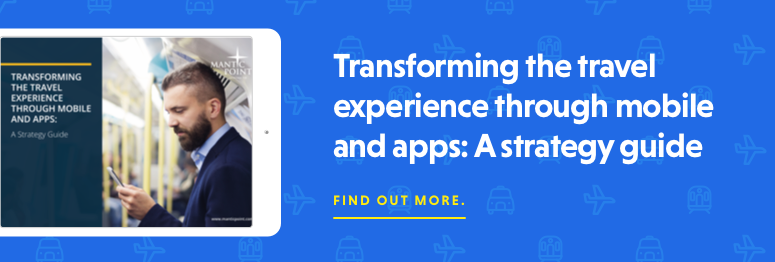6 Questions to Ask When Considering a Mobile Travel App Partner
Posted by Mike Atherton on 13 January, 2017
Finding the ideal mobile travel app provider can be difficult. Their level of experience, potential conflicts of interest and timeliness of delivery are some of the factors you should consider, but without asking the right questions, how can you be confident that your prospective partner is the right fit for your organisation?
To help you make an informed decision, here are 6 questions we think you should ask.
1. What Expertise Do They Have in Your Sector?
This goes deeper than “we’re in travel”. We all know that travel has many domains which have unique characteristics. Knowing the airline model doesn’t always translate into expertise in managed business travel. For this reason, be sure to ask your potential partner to describe their experience working with similar agencies. This includes asking in-depth questions about their understanding of your GDS to get an idea of how they will approach your environment.
2. Can They Be Truly Objective?
When looking for a partner to support the delivery of your mobile strategy, you need to know that they are bringing the best ideas and industry relationships to your project.
If your prospective app provider is a GDS, or owned by one, there could be a conflict of interest. Getting your mobile app service from an organisation that is focused on traditional distribution, no matter how “independent” they say they are, might get in the way if your organisation wants to review its GDS strategy, implement off-GDS booking process or go multi-GDS. And let’s not forget, GDS timescales are not often in line with the wider travel market, so coordinating initiatives with them could prove tricky.
3. Can They Point to Successful Implementations?
Whilst each agency has its unique proposition in its market sector, within each client network there will be a lot of common processes with other agencies.
Boilerplate lists of industry names are a good starting point, but eventually you will need to drill down into what specific experience your partner has in successfully implementing technology within its client network. To do this, you may wish to talk to similar agencies who have used their technology to solve their problems.
4. Can They Work With Your Other Traveller Communication Methods?
Whilst focusing on mobile, it’s important not to forget your other communication channels. Document delivery, invoicing, invoice retrieval, online interactive itineraries and even risk management should all fall within your partner's understanding and/or services, so that they can fully support your contract strategy. If your app provider boasts about being mobile-only then there is a risk that you will end up with a disjointed, inconsistent approach to client and traveller communications. So, despite mobile being the central focus, don’t box yourself in to a mobile-only provider when your communications strategy needs to evolve and expand.
This touches on the topic of a previous blog post that explains how mobile should be a priority, but not the only approach to communication. A significant number of your travel arrangers and travellers will want their usual travel documentation, whether that be email or an online itinerary.
5. Do They Deliver on Time?
This comes in two parts. Firstly, delivering a mobile project is a collaborative effort and you will need dedicated resources to make sure your organisation can support the launch. Your partner should be able to give you guidance about what type of resource is needed when and for how long to ensure a successful delivery and launch of your mobile service.
The second part is more straightforward. Ask to speak to their other agencies to get a feel for how they work and their experience in dealing with the provider.
6. Can They Support Your Marketing Efforts to Drive the Impact of Your Traveller Contact Strategy?
Can your prospective partner go the extra mile, and not just service your technology needs, but also support you across a range of activities to make the greatest impact with your clients and travellers? They should understand your business strategy and be able to provide you with the collateral and/or content for your promotional efforts. Remember to ask what support they can give to your organisation to help them understand the unique components of your services. What’s more, find out if they are able and willing to support specialist areas, such as risk management, or perhaps help fill a particular void in your skill-set to aid in the initial deployment.
For more information on mobile apps and the impact they can have on the travel experience you offer your clients, download our mobile strategy guide for TMCs.



